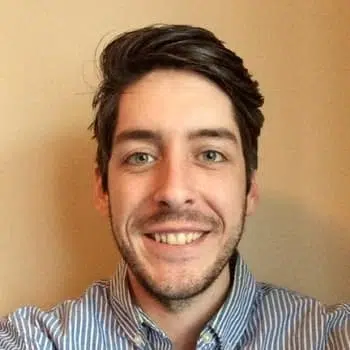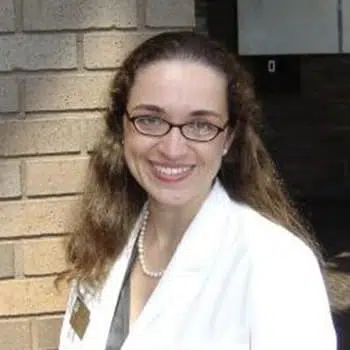Opioid Rehab in Ohio
Written by Jonathan Strum
& Medically Reviewed by Dr. Jessica Pyhtila, PharmD
Medically Reviewed
Last updated: 11/04/2022
Opioid addiction is a common concern in Ohio, but professional rehab treatment centers like The Recovery Village Columbus can provide the tools needed to heal.
An estimated 1.7 million Americans struggle with opioid addiction each year. Ohioans are not exempt from this crisis: accidental drug overdose is the leading cause of death in the state, and cases have been rising due to the ongoing COVID-19 pandemic.
Opioid overdoses, alone or in combination with other drugs, are a serious problem in Ohio. In particular, the powerful narcotic fentanyl has been a major contributor to overdose rates throughout the state. In 2019 alone, the drug was involved in 76% of all overdose deaths in Ohio.
Prescription opioids are also exceedingly common in the state. As of 2020, there were 47,820 opioid prescriptions written for every 100,000 residents in Franklin County, Ohio. In 2018, Ohio doctors wrote 53.5 opioid prescriptions for every 100 residents, which is above the national average of 51.4 per 100.
Fortunately, there are many treatment options for those struggling with illicit or prescription opioids. Experts state that the most effective opioid addiction treatments typically involve a combination of counseling and medication. However, it’s also important to find a treatment facility like The Recovery Village Columbus that will take a holistic approach to addiction, treating the root of the problem and not just its symptoms.
If you are struggling with opioid addiction, we are here for you.
Evidence-Based Treatment for Opioid Addiction
- Medically supervised detox has more success than other detox methods, such as trying to quit cold turkey without professional help.
- Medication-assisted therapy (MAT) with methadone or buprenorphine-based products is recommended for those struggling with opioids.
- Some people may benefit from MAT indefinitely.
- A more intensive level of inpatient care is recommended for those with multiple substance use concerns, poor health or mental health struggles.
The Opioid Addiction Treatment Process
You may be wondering what you can expect during opioid rehab treatment. In a residential program, treatment for opioid addiction will begin with a medically supervised detox period that allows a client to safely eliminate drugs from their system. In a full-service rehabilitation center, medical care as well as therapeutic and supportive recovery services are provided throughout treatment.
The Components of an Effective Treatment Program
The Recovery Village Columbus offers multiple types of evidence-based treatment to address your needs, no matter where you are in the recovery process. From detox and rehab to long-term aftercare, we offer a full continuum of services to support you during your recovery. Our treatment services include:
- Medical detox: Medical detox helps you stop taking opioids while receiving care for uncomfortable or dangerous withdrawal symptoms. For many people, this is where MAT with methadone or buprenorphine begins.
- Residential treatment: During inpatient treatment, you live at our facility to focus on your recovery from opioids without outside distractions.
- Outpatient treatment: Following inpatient rehab, outpatient treatment keeps you focused on the recovery process while you transition back to your day-to-day life. Some people with mild opioid addictions may begin the treatment process in outpatient care.
- Teletherapy: The Recovery Village Columbus offers online therapy options to help keep you involved in your recovery if you cannot attend in-person appointments.
- Partial hospitalization program (PHP): PHP is an intermediate step between inpatient and outpatient rehab. It’s designed for those who have completed inpatient rehab but need additional support before fully transitioning back into daily life.
- Intensive outpatient program (IOP): Our intensive outpatient program offers additional medical support for those who are ready to begin outpatient care.
- Aftercare: Recovery is a lifelong process, and our post-rehab aftercare options help you every step of the way with alumni groups, therapy and additional support options for sober living.
- Co-occurring disorders: Mental health problems are common among those who struggle with opioids. By treating both the opioid use disorder and any underlying mental health concerns, we help increase your chances of long-term sobriety.
- FORTITUDE: Fortitude is a specialized program for past and current first responders, including firefighters, law enforcement officers, emergency medical personnel and more.
Did you know?
Your insurance may cover the cost of rehab.
How To Know When It’s Time To Seek Treatment
When it comes to opioid addiction, there are many misconceptions. Some people believe a person should be able to have the willpower to stop on their own. However, addiction is a disease that must be treated — it’s not a matter of willpower. Treating substance use disorder will often call for ongoing therapy, recovery meetings and a long-term recovery plan.
The most important thing to know about opioid addiction is that help is available. There are many different resources in Ohio and throughout the nation that will help you to address your addiction and begin a path to lifelong recovery.
Benefits of Our Treatment Programs
The Recovery Village Columbus provides more than just addiction treatment — it offers a calm, healing environment that helps you thrive throughout your recovery. Located outside of Columbus in Groveport, Ohio, our 80-bed treatment facility makes the recovery process a little more relaxing by offering:
- Two fully equipped gyms
- Pickleball and volleyball courts
- An art studio
- A rec room with shuffleboard and pool tables
- Computer labs
- Outdoor fire pits
- Off-site field trips
It’s easy to feel alone when you’re struggling with addiction, but help and ongoing support can be found at The Recovery Village Columbus. If you’re ready to begin the recovery journey, contact us today to learn more about opioid addiction treatment programs that can work well for your situation.
View Sources
National Institute on Drug Abuse. “Opioid Overdose Crisis.” March 11, 2021. Accessed November 23, 2021.
Ohio Department of Health. “Drug Overdose.” Accessed November 23, 2021.
National Institute on Drug Abuse. “Ohio: Opioid-Involved Deaths and Related Harms.” April 3, 2020. Accessed November 23, 2021.
State of Ohio Board of Pharmacy. “PDMP Interactive Data Tool.” Accessed November 23, 2021.
Office of the Ohio Attorney General. “Record Surges in Opioid Overdoses Prompt[…]st to Urge Vigilance.” January 11, 2021. Accessed November 23, 2021.
American Society of Addiction Medicine. “National Practice Guideline for the Trea[…] Opioid Use Disorder.” December 18, 2019. Accessed November 23, 2021.
Authorship


